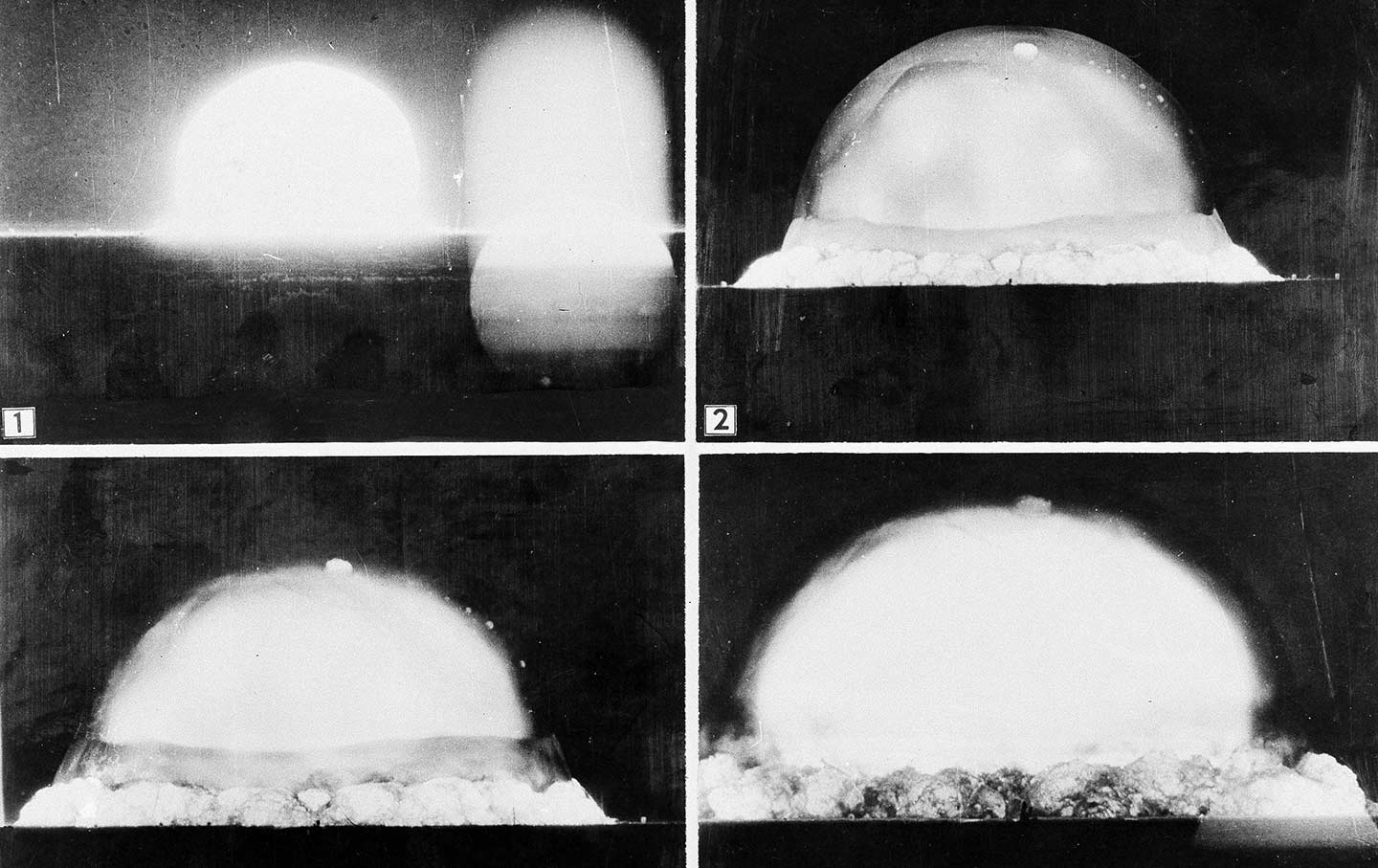The Nuclear Club, Part 2
On this episode of American Prestige, a continuation of our discussion on US efforts to maintain nuclear supremacy during the early Cold War.

Here's where to find podcasts from The Nation. Political talk without the boring parts, featuring the writers, activists and artists who shape the news, from a progressive perspective.
On this episode of American Prestige, Danny and Derek welcome back Jonathan Hunt, assistant professor at the U.S. Naval War College and a fellow of the Nuclear Security Program at Yale University, to talk about his book The Nuclear Club, which follows the efforts of a select few world powers to maintain exclusive access to nuclear weapons. This final episode examines President Lyndon Johnson’s approach to nuclear weapons, the 1968 Non-Proliferation Treaty (NPT) and how Vietnam factored into its scope, the Arms Control and Disarmament Agency (ACDA), tactical nuclear weapons, the Treaty of Tlatelolco, and more.
Note: The views expressed here are those of the author alone and do not necessarily represent the views, policies, or positions of the U.S. Department of Defense or its components, to include the Department of the Navy or the U.S. Naval War College.
Advertising Inquiries: https://redcircle.com/brands
Privacy & Opt-Out: https://redcircle.com/privacy

The first atomic bomb test was conducted at Alamogordo, N.M., July 16, 1945.
(AP / US Army)On this episode of American Prestige, we welcome back Jonathan Hunt, assistant professor at the US Naval War College and a fellow of the Nuclear Security Program at Yale University, to talk about his book The Nuclear Club, which follows the efforts of a select few world powers to maintain exclusive access to nuclear weapons.
This second part of the discussion picks up in the mid-1950s after Eisenhower’s “Atoms for Peace” speech, covering non-proliferation movement leaders like Irish foreign minister Frank Aiken, the flexible response policy and other changes to America’s nuclear posture under the Kennedy administration, the 1963 Partial Test Ban Treaty, proliferation optimists vs, pessimists, and more through the late 1960s.
Note: The views expressed here are those of the author alone and do not necessarily represent the views, policies, or positions of the US Department of Defense or its components, to include the Department of the Navy or the US Naval War College.

Here's where to find podcasts from The Nation. Political talk without the boring parts, featuring the writers, activists and artists who shape the news, from a progressive perspective.
On this episode of American Prestige, Danny and Derek are joined by Trita Parsi, executive vice president of the Quincy Institute, and Aslı Bâli, professor of law at Yale Law School and nonresident fellow at Quincy, to talk about the Institute’s Better Order Project, a collaboration between over 130 people from more than 40 countries creating proposals for a stable, multipolar world. They talk about the vision of moving beyond the current “rules-based” order in favor of an inclusive, global one rooted in international law, the major variables around which the project’s proposals and reforms are organized, how to address great powers prioritizing short-term, political thinking, the atmosphere in the worlds of think tanks, nonprofits, and elite law as we begin Trump 2.0, how these communities have been reckoning with the US policy on Gaza, and more.
Advertising Inquiries: https://redcircle.com/brands
Privacy & Opt-Out: https://redcircle.com/privacy
